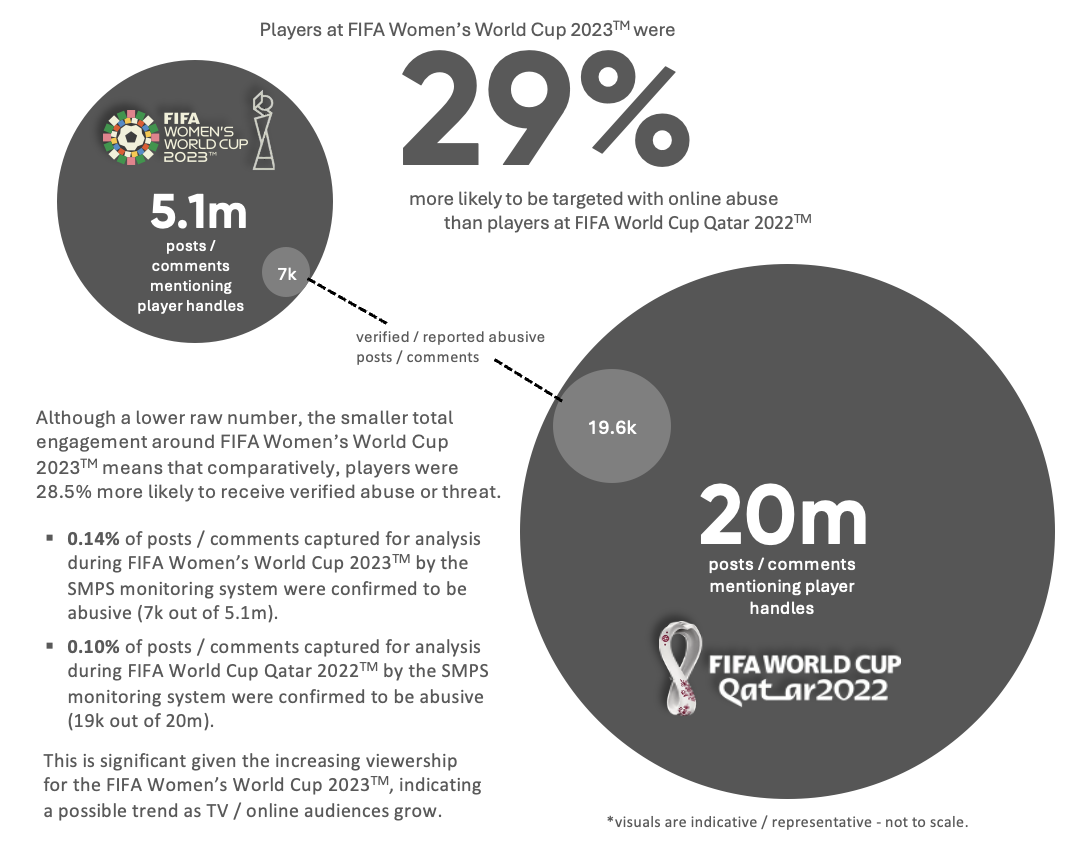Protecting Women’s Sport from Online Abuse - Intl Women’s Day 2024
Women’s sport is thriving. With stadium sell-outs, attendance records repeatedly being broken, and 46.7 million fans watching women’s sport in 2023 – the visibility of women’s sport has never been higher. However, increased visibility can lead to an increased susceptibility to online abuse.
Signify’s Account Manager for Sports, Georgia Relf, takes a deeper dive into the issue on International Women’s Day 2024.
A comparison of the figures from the last Men’s and Women’s FIFA World Cups that took place in 2022 and 2023 respectively, shows that participants at the Women’s tournament were 29% more likely to be targeted with online abuse. It was also found that 1 in 5 women’s players received online abuse during that competition.
Data from FIFA’s Social Media Protection Service (SMPS) Report covering the FIFA Women’s World Cup Australia & New Zealand 2023. Read the report here.
An analytical breakdown of Signify’s Threat Matrix data on online abuse across multiple sports found that female athletes are more profoundly targeted with homophobia and abuse containing sexual references. During the FIFA Women’s World Cup 2023, homophobia was identified in double the volumes of the men’s competition.
In a study that Signify carried out for UK Anti-Racism charity Kick It Out in early 2023, capturing and analysing targeted abusive content sent to all players from across the English Premier League and the Women’s Super League, we looked at the top 10 most heavily targeted players to try and understand what the picture looked like and what the triggers and motivations of the abusive content were. One of the key findings from that study was that, for the first time, we saw a player from the WSL making it into the top 10. This further emphasises the visibility of the Women’s game, whilst also highlighting the obvious concerns.
When combined with the experiences of Women in sport in the offline setting, see Kick It Out’s recent research highlighting four in five women coaches experiencing sexism in football, it is clear that there is a growing problem.
The data reported from both international events like the FIFA Women’s World Cup, domestic data from the WSL, along with learnings from years of data on Men’s football and the many safeguards missing from the game (and the social media platforms themselves), provides an opportunity to do things differently with the Women’s game. A clearer understanding of the volumes, categorisations, triggers and motivations of the bad actors sending this targeted abusive content is a starting point. Once we have a more detailed picture, we can start to invest more intelligently in the solutions that work. For example, new regulatory frameworks being set up across the UK, EU and US will offer opportunities to take heightened action – leading to better outcomes.
Signify’s work across football, rugby, cricket, tennis and athletics (amongst other sports) is supporting this and highlighting the true scale of the issue. But taking advantage of the opportunity to do things better in Women’s sport has to be a shared goal. Signify are proud to work with a number of incredible organisations and changemakers across global sport, including in Women’s sport, who care deeply about these issues – if you are one of them – thank you for the work you do. If you are someone who cares deeply about these issues and want to drive change by engaging or working with us, you can learn more about our Threat Matrix service here – we would love to hear from you!
Creative Commons License - Image credit iqremix (Image has been edited).

